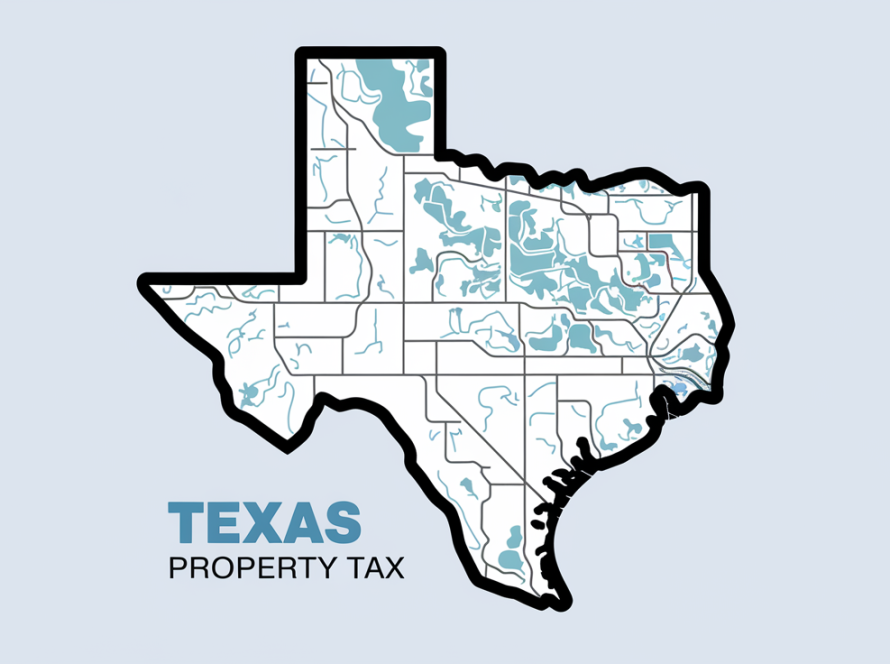Running an S corporation comes with a unique set of advantages, especially when it comes to minimizing your tax burden. One of the most critical aspects of S Corp taxation involves determining a reasonable salary for yourself as a shareholder. It’s a delicate balance – you want to keep your self-employment taxes low, but also ensure you’re complying with IRS guidelines. This blog post will provide a comprehensive overview of how to determine a reasonable shareholder salary for the 2024 tax year, incorporating the latest information and insights to help you navigate this complex area.
Key Takeaways
- Reasonable compensation is key: Paying yourself a fair salary is crucial for both minimizing taxes and staying compliant with the IRS.
- Multiple factors are at play: Your experience, the company’s performance, industry standards, and more all contribute to determining what’s “reasonable.”
- Documentation is essential: Keep thorough records of your duties, time spent working, and any factors that justify your salary.
- Seek professional advice: Consulting with a qualified tax professional can provide clarity and peace of mind.
Why Your Salary Matters
The primary tax advantage of an S Corp lies in its ability to reduce self-employment taxes (Social Security and Medicare). These taxes apply to your salary, currently at a combined rate of 15.3% for 2024. If you overpay yourself, you’ll end up paying more in these taxes. However, if you underpay yourself in an attempt to avoid these taxes, you could attract unwanted attention from the IRS. Finding that sweet spot is crucial for maximizing your tax benefits while staying compliant.
Defining “Reasonable” Compensation
While the IRS emphasizes the importance of “reasonable compensation,” it doesn’t provide a clear-cut definition. Instead of focusing on a specific number, it’s more helpful to consider what the IRS might deem unreasonable. For instance, if your S Corp generates $200,000 in net income and you only pay yourself a $10,000 salary, that would likely raise red flags.
It’s important to remember that “reasonable” isn’t a fixed target; it’s a range. This flexibility allows you to justify your salary calculation based on your unique circumstances and the specific factors related to your business and role within it.
Factors that Influence Reasonable Compensation
The IRS and tax courts consider a variety of factors when evaluating the reasonableness of shareholder-employee salaries. Here are some of the key elements that come into play:
- Experience and Qualifications: Your education, relevant skills, certifications, and years of experience in the industry all contribute to your value within the company.
- Duties and Responsibilities: The specific nature and scope of your work, including the complexity of your tasks and your level of decision-making authority, are important considerations.
- Time and Effort: The actual number of hours you dedicate to the business each week and the intensity of your work are taken into account.
- Industry Standards: Compensation data for similar positions in comparable companies within your industry serve as a valuable benchmark.
- Company Performance: The company’s financial performance, including its gross and net income, profitability, and history of dividend distributions to shareholders, plays a significant role.
- Employee Compensation: Salaries paid to non-shareholder employees are also relevant. Generally, you shouldn’t pay yourself less than your employees, especially if they perform similar tasks.
- Compensation Agreements: Any formal agreements or contracts that outline your salary and compensation structure can be used as supporting evidence.
Data Sources for Benchmarking
To support your salary calculation and demonstrate its reasonableness, you can leverage data from reputable sources:
- Bureau of Labor Statistics (BLS): The BLS website (www.bls.gov) provides comprehensive salary data for various occupations across different industries and geographic locations.
- Risk Management Association (RMA): RMA (www.rmahq.org) offers industry-specific compensation data and reports that can be helpful in benchmarking your salary.
- RCReports: This specialized firm (www.rcreports.com) focuses on providing detailed reasonable compensation reports tailored to specific industries and job roles.
- Salary.com and Similar Websites: Websites like Salary.com, Glassdoor, and Indeed offer salary data, comparison tools, and calculators that can help you assess the market value of your position.
Beyond the Basics: A Deeper Dive
While industry benchmarks provide a solid foundation, they don’t paint the whole picture. Here are some additional factors to consider:
- Your Role in the Company: Are you the driving force behind the business, or are there other key personnel contributing significantly to its success?
- Company Structure: Do you have employees or independent contractors? How does your role compare to theirs in terms of responsibility and contribution?
- Business Model: Is your business heavily reliant on your personal expertise and relationships, or is it more systematized and less dependent on your individual efforts?
- Investor Risk: What level of financial risk are you taking as an investor in the business? Higher risk may justify higher distributions and a lower salary.
- Long-Term Goals: How does your current salary align with your long-term financial objectives, such as retirement planning and wealth building?
Developing a Defensible Salary: A Step-by-Step Approach
- Start with Data: Use industry benchmarks and data sources as a starting point for your salary calculation. This provides an objective basis for your compensation.
- Document Your Duties: Keep detailed records of your responsibilities, the tasks you perform, and the time spent on each. This documentation is crucial in justifying your salary.
- Consider a “Many Hats” Approach: If you wear multiple hats in your business (e.g., CEO, sales manager, marketing director), factor in the value of each role separately.
- Factor in Benefits: Include the value of any benefits you receive from the company, such as health insurance, retirement contributions, or company car usage, in your overall compensation package.
- Don’t Forget Risk: Assess your level of investor risk and adjust your salary and distributions accordingly. Higher risk may warrant a higher proportion of income in the form of distributions.
- Seek Professional Advice: Consult with a qualified tax professional or compensation specialist to ensure your salary is defensible, optimized for your specific situation, and aligned with your financial goals.
State-Specific Considerations
While the federal guidelines on reasonable compensation provide a general framework, it’s crucial to remember that states may have their own specific rules and interpretations. For instance, some states might have stricter requirements or place greater emphasis on certain factors when evaluating shareholder salaries.
For example, California has its own unique set of regulations regarding worker classification and reasonable compensation, which can impact how S Corp shareholders are paid. Similarly, New York has specific guidelines on wage and hour laws that can influence the determination of reasonable compensation.
Therefore, it’s essential to consult with a tax professional who is well-versed in your state’s specific regulations to ensure full compliance.
Recent Tax Court Cases
Tax court cases can provide valuable insights into how the IRS applies reasonable compensation rules in real-world scenarios. Here are a few notable cases that highlight key considerations:
- JD & Associates v. Commissioner (2006): The court emphasized the importance of thoroughly documenting the shareholder-employee’s experience, qualifications, and the complexity of their duties to justify a higher salary. The case involved an S corporation where the shareholder-employee received a relatively low salary and substantial dividends. The IRS challenged this arrangement, arguing that the salary was unreasonably low and that a portion of the dividends should be reclassified as wages. The court ultimately sided with the IRS, highlighting the need for detailed documentation to support the reasonableness of compensation, especially when it appears disproportionately low compared to dividends.
- Sean McAlary v. Commissioner (2013): This case underscored the importance of considering industry standards and comparable salaries when evaluating the reasonableness of compensation. This means that assessing an employee’s pay should involve comparing it to what others with similar roles and responsibilities earn in the same industry, providing a more objective measure of fair compensation.
- Watson v. Commissioner, 668 F.3d 1008 (8th Cir., 2012): This case highlighted the crucial connection between a company’s financial performance, its dividend history, and the determination of reasonable compensation for shareholder-employees. By examining these factors together, the court provided a clearer understanding of how the IRS assesses whether compensation is truly reasonable, offering valuable guidance for S corporations and their tax advisors.
Staying abreast of recent tax court rulings can help you understand how the IRS is interpreting and applying reasonable compensation guidelines, allowing you to proactively adjust your compensation strategy.
Social Security Wage Base Limit
For 2024, the Social Security wage base limit is $160,200. This means that only the first $160,200 of your salary is subject to Social Security taxes (6.2% rate). While Medicare taxes (1.45% rate) apply to all your earnings, the Social Security limit can significantly impact your overall tax liability.
Understanding this limit is crucial when determining your optimal compensation strategy. It’s important to factor this into your calculations, especially if your income exceeds the wage base limit.
Penalties for Non-Compliance
Failing to pay yourself a reasonable salary can lead to IRS penalties, which can be substantial. If the IRS determines that you have underpaid yourself, they may reclassify a portion of your distributions as wages, resulting in:
- Additional self-employment taxes: You’ll be liable for the unpaid Social Security and Medicare taxes on the reclassified amount.
- Penalties: You may face accuracy-related penalties, which can be as high as 20% of the underpayment.
- Interest: Interest will accrue on the unpaid taxes and penalties.
In some cases, the IRS may also impose additional penalties for fraud or negligence if they believe you intentionally underpaid your salary to avoid taxes.
It’s important to understand the potential consequences of non-compliance to emphasize the importance of adhering to reasonable compensation guidelines.
Staying Current in a Changing Landscape
Tax laws, IRS regulations, and reasonable compensation guidelines can change over time. It’s essential to stay informed about the latest developments. Review the latest IRS data and publications, such as IRS Publication 15-A, Employer’s Supplemental Tax Guide (www.irs.gov/pub/irs-pdf/p15a.pdf), and consult with your tax advisor regularly to ensure your compensation strategy remains compliant and effective.
By taking a thoughtful, well-documented, and proactive approach to determining your shareholder salary, you can effectively minimize your tax liability while maintaining a strong position in the event of an IRS audit.
FAQ
Q: Is there a specific formula or percentage I should use to determine my salary?
A: No, there’s no magic formula or percentage. The IRS focuses on the overall reasonableness of your compensation in relation to your role, experience, the company’s performance, and other relevant factors.
Q: What happens if the IRS determines my salary is unreasonable?
A: If the IRS deems your salary too low, they may reclassify some of your distributions as wages, resulting in additional self-employment taxes, penalties, and interest.
Q: Can I pay myself solely in distributions and avoid a salary altogether?
A: While it’s technically possible in certain situations (e.g., if the business is not profitable), it’s generally not advisable. The IRS expects shareholder-employees who actively participate in their businesses to receive a reasonable salary.
Q: How often should I review and adjust my salary?
A: It’s a good practice to review your salary at least annually, or more frequently if there are significant changes in your role, the company’s performance, or relevant tax laws.
Connecting with XOA TAX
Navigating the complexities of S Corp compensation and ensuring you’re paying yourself a reasonable salary can be challenging. At XOA TAX, our experienced CPAs can provide personalized guidance and support to help you develop a compensation strategy that aligns with your business goals and minimizes your tax liability.
We can help you:
- Determine a defensible and tax-advantageous salary
- Benchmark your compensation against industry standards
- Develop comprehensive documentation to support your salary calculation
- Stay informed about the latest tax laws and regulations
Contact us today to schedule a consultation and learn how we can assist you.
Website: https://bwgv2xepn2kgo7imbfjg-production-sites.xoatax.net/
Phone: +1 (714) 594-6986
Email: [email protected]
Contact Page: https://bwgv2xepn2kgo7imbfjg-production-sites.xoatax.net/


